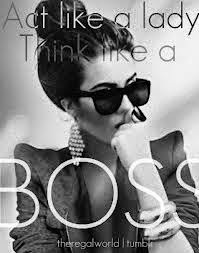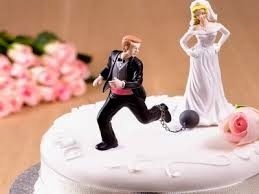You better run, baby, run, outrun my gun
My Facebook feed is a sort of mixed bag. On the one hand, I have my "actual" friends, who are almost always either doing something fun or funny. Scroll through their holiday photos, or a picture of a meal they've eaten, or a funny billboard they've noticed, or so on and so forth, and you come to the second layer of my Facebook feed: the acquaintances, people whose names I no longer connect with anything except Facebook, and people I haven't spoken to in years but who I knew once well enough for me to accept their friend request.
This layer sometimes provides me with more entertainment than the first. Whether it's the die-hard Modiphile with his new daily rant (which basically just serves as an exercise in, "How hard can he push my buttons today?") or a girl I think I knew in school? I'm not sure, but who has some lovely photos up of her kids with fun captions. I also love to play the schadenfreude game with old classmates: who looks older? who looks fatter? who looks amazing and oh my god, are we the same age? I know, I know, it's very non-uplifting, but I'm fairly sure everyone does it.
Today, scrolling down idly, I came across a photo which struck me. It was a very ordinary photo: two people at a party, holding up those placards you can pose with. You know the ones, they have some pithy saying on them, and you hold up one to indicate your personality. This one had a husband and wife duo, and the wife's sign said, "I'm the boss!"

Of all the signs that actually indicate the opposite of what you had in mind, "I'm the boss" strikes me as the most pathetic. There's something in the women's eyes, a bitter realisation that this is as good as it gets, that holding up a sign saying, "I'm the boss!" will somehow give them autonomy and power in their relationship.
 "Oh yes," says the husband, usually an arranged marriage husband, "Vanya makes all the decisions, she's totally the boss. Aren't you Vanya?" Vanya emerges, smiling and sweaty from the kitchen, "That's right!" Vanya gets to pick the holiday destination, but has to shut up about not wanting kids for a few years. Vanya has an input about the family car, "Let's get the red one!" but the model and make will be left up to her husband. Vanya stays at home and keeps her mother-in-law happy, but by withdrawing sex, can manipulate her husband into little favours.
"Oh yes," says the husband, usually an arranged marriage husband, "Vanya makes all the decisions, she's totally the boss. Aren't you Vanya?" Vanya emerges, smiling and sweaty from the kitchen, "That's right!" Vanya gets to pick the holiday destination, but has to shut up about not wanting kids for a few years. Vanya has an input about the family car, "Let's get the red one!" but the model and make will be left up to her husband. Vanya stays at home and keeps her mother-in-law happy, but by withdrawing sex, can manipulate her husband into little favours.
There was an Airtel ad recently that went viral, about a woman boss giving extra work to her employees and then going home and cooking dinner. Later, it emerges that one of her employees is actually her husband! And she's making dinner for him! As an apology, maybe, for working late? The ad--with all its good intentions--begins with the woman boss apologising for making them stay in so late. Then, tired, exhausted from a long day and a sulky husband, she proceeds to cook up a feast and calls him. "Wife" his phone says, all their phones say "Wife", because that is her identity. The bit Airtel doesn't show is their conversation.
"Come home, na, I cooked."
"Fine."
"Please don't be mad, I needed you to do the work also, otherwise it looks like favourtism."
"I said, fine."
Then off he skips, home, leaving the other men speculating about banging the boss and how easy it would be if they too were married to the one in power.
In this situation, I can guarantee you, the actual boss never held up a sign saying, "I'm the boss." That would flick, cut too close to a nerve. She was the boss, and so she could never be casual about it. She wore her power like a burden, anxious to give it away as soon as possible.
What you want is a relationship between two equals--and this is my essential problem with all pop culture that references a man being in a relationship against his will. Being "dragged" to the altar.
 Being tied up with a ball and chain.
Being tied up with a ball and chain.
While "I'm the boss" may seem like an empowered, empowering statement, in actual fact, it isn't.

This layer sometimes provides me with more entertainment than the first. Whether it's the die-hard Modiphile with his new daily rant (which basically just serves as an exercise in, "How hard can he push my buttons today?") or a girl I think I knew in school? I'm not sure, but who has some lovely photos up of her kids with fun captions. I also love to play the schadenfreude game with old classmates: who looks older? who looks fatter? who looks amazing and oh my god, are we the same age? I know, I know, it's very non-uplifting, but I'm fairly sure everyone does it.
Today, scrolling down idly, I came across a photo which struck me. It was a very ordinary photo: two people at a party, holding up those placards you can pose with. You know the ones, they have some pithy saying on them, and you hold up one to indicate your personality. This one had a husband and wife duo, and the wife's sign said, "I'm the boss!"

Of all the signs that actually indicate the opposite of what you had in mind, "I'm the boss" strikes me as the most pathetic. There's something in the women's eyes, a bitter realisation that this is as good as it gets, that holding up a sign saying, "I'm the boss!" will somehow give them autonomy and power in their relationship.
 "Oh yes," says the husband, usually an arranged marriage husband, "Vanya makes all the decisions, she's totally the boss. Aren't you Vanya?" Vanya emerges, smiling and sweaty from the kitchen, "That's right!" Vanya gets to pick the holiday destination, but has to shut up about not wanting kids for a few years. Vanya has an input about the family car, "Let's get the red one!" but the model and make will be left up to her husband. Vanya stays at home and keeps her mother-in-law happy, but by withdrawing sex, can manipulate her husband into little favours.
"Oh yes," says the husband, usually an arranged marriage husband, "Vanya makes all the decisions, she's totally the boss. Aren't you Vanya?" Vanya emerges, smiling and sweaty from the kitchen, "That's right!" Vanya gets to pick the holiday destination, but has to shut up about not wanting kids for a few years. Vanya has an input about the family car, "Let's get the red one!" but the model and make will be left up to her husband. Vanya stays at home and keeps her mother-in-law happy, but by withdrawing sex, can manipulate her husband into little favours. There was an Airtel ad recently that went viral, about a woman boss giving extra work to her employees and then going home and cooking dinner. Later, it emerges that one of her employees is actually her husband! And she's making dinner for him! As an apology, maybe, for working late? The ad--with all its good intentions--begins with the woman boss apologising for making them stay in so late. Then, tired, exhausted from a long day and a sulky husband, she proceeds to cook up a feast and calls him. "Wife" his phone says, all their phones say "Wife", because that is her identity. The bit Airtel doesn't show is their conversation.
"Come home, na, I cooked."
"Fine."
"Please don't be mad, I needed you to do the work also, otherwise it looks like favourtism."
"I said, fine."
Then off he skips, home, leaving the other men speculating about banging the boss and how easy it would be if they too were married to the one in power.
In this situation, I can guarantee you, the actual boss never held up a sign saying, "I'm the boss." That would flick, cut too close to a nerve. She was the boss, and so she could never be casual about it. She wore her power like a burden, anxious to give it away as soon as possible.
What you want is a relationship between two equals--and this is my essential problem with all pop culture that references a man being in a relationship against his will. Being "dragged" to the altar.
 Being tied up with a ball and chain.
Being tied up with a ball and chain.While "I'm the boss" may seem like an empowered, empowering statement, in actual fact, it isn't.

Published on August 24, 2014 21:51
No comments have been added yet.



